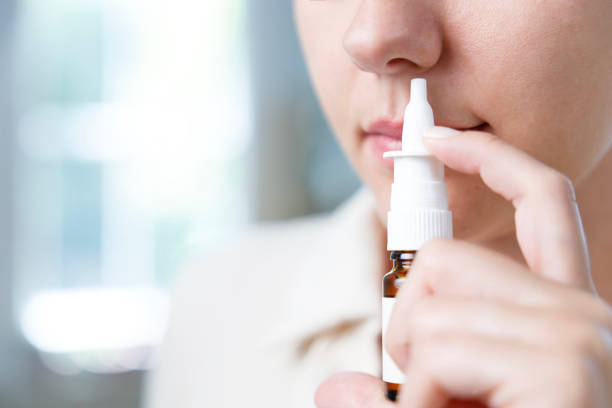USP Inhaler Functionality Testing
The United States Pharmacopeia (USP) inhaler functionality testing is a critical procedure aimed at ensuring that metered-dose inhalers and other aerosol delivery devices function as expected. This service is pivotal for pharmaceutical companies to guarantee the safety, efficacy, and reliability of their product before it reaches the market.
The primary focus of this testing lies in assessing how accurately the device delivers its active ingredients within specified dose ranges under various conditions. The test parameters are meticulously defined to simulate real-world usage scenarios, ensuring that the inhaler performs consistently across different environments and user behaviors. This includes evaluating factors such as actuation force, spray volume, particle size distribution, and drug content uniformity.
The testing process typically involves several steps: initial inspection of the device for any visible defects or discrepancies; preparation of the sample by ensuring it meets all necessary preconditions (e.g., temperature, humidity); operation of the inhaler according to prescribed protocols; measurement and analysis of the delivered dose using advanced analytical techniques like laser diffraction or image-based particle sizing; and finally, comparison against established USP standards.
Compliance with these stringent requirements is crucial because it directly impacts patient safety. Non-compliant devices could potentially deliver incorrect dosages, leading to either under-treatment (ineffective therapy) or over-treatment (potentially harmful side effects). By adhering strictly to the specified procedures and criteria laid out by USP, laboratories like ours ensure that only reliable products enter the healthcare ecosystem.
To further illustrate the importance of this service, consider some real-world applications. For instance, during clinical trials, ensuring proper inhaler functionality helps in accurately assessing drug efficacy without introducing variability due to device performance issues. In manufacturing environments, regular testing ensures consistent product quality and prevents costly recalls later on. Moreover, for regulatory bodies, having reliable data from such tests strengthens their ability to enforce compliance with pharmaceutical regulations worldwide.
It's worth noting that this service extends beyond mere technical specifications; it also plays a significant role in enhancing public trust in medical devices. Consumers increasingly demand transparency about the safety and effectiveness of medications they use daily, making sure that inhalers function correctly is one way manufacturers can meet these expectations. By offering USP inhaler functionality testing, we contribute to this effort by providing accurate, reproducible results which support both patient care and industry standards.
Why It Matters
The importance of ensuring proper inhaler functionality cannot be overstated. Properly functioning inhalers are essential for delivering precise doses of medication to patients who rely on them for managing respiratory conditions like asthma or chronic obstructive pulmonary disease (COPD). When an inhaler doesn't function correctly, it can lead to improper dosing which may result in ineffective treatment outcomes or even adverse health effects.
For manufacturers, compliance with USP standards not only ensures product quality but also facilitates smoother interactions with regulatory agencies such as the FDA. Adherence to these guidelines helps build credibility and trust among consumers who look for reliable products when purchasing healthcare items online or at retail stores.
In summary, consistent inhaler functionality testing is crucial because it contributes significantly to improved patient outcomes by reducing errors related to incorrect dosing. It also supports the integrity of pharmaceutical supply chains while fostering greater confidence in medical technology among consumers and regulatory authorities alike.
Industry Applications
| Application Area | Description |
|---|---|
| Clinical Trials | Evaluating the effectiveness of new inhaler designs before they are approved for widespread use. |
| Manufacturing Quality Control | Surety that each batch of inhalers produced meets strict quality specifications. |
| Regulatory Compliance | Ensuring compliance with international standards set by organizations like USP and WHO. |
| Patient Safety | Maintaining consistent performance across all inhalers to avoid discrepancies in treatment efficacy. |
Quality and Reliability Assurance
- Conducting thorough inspections of each inhaler before testing to identify potential issues early on.
- Using calibrated equipment to measure spray characteristics accurately throughout the test process.
- Implementing standardized operating procedures to ensure consistent results across all tests performed.
- Documenting every step taken during the testing procedure for future reference and audits.





